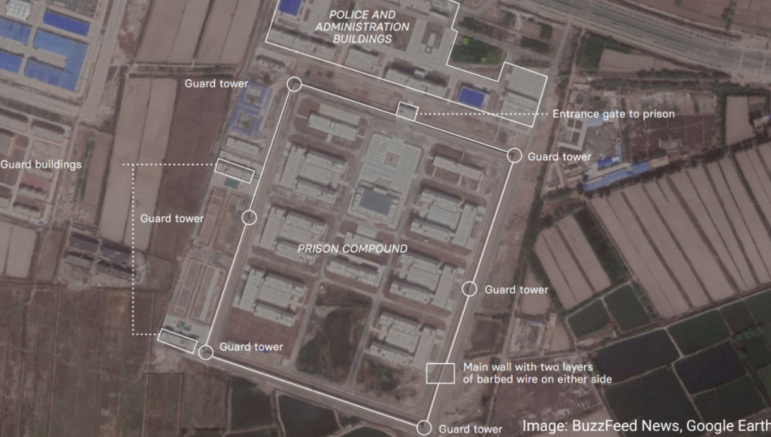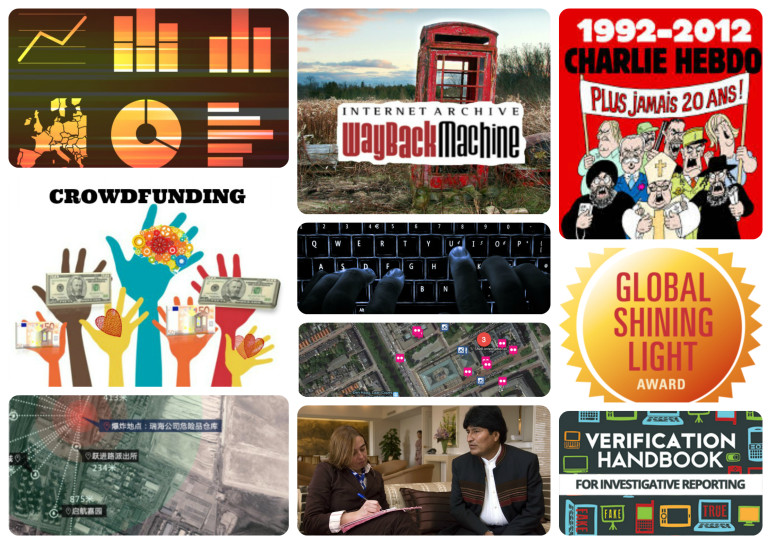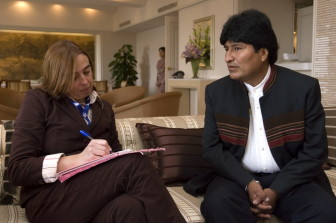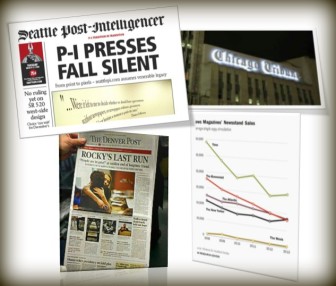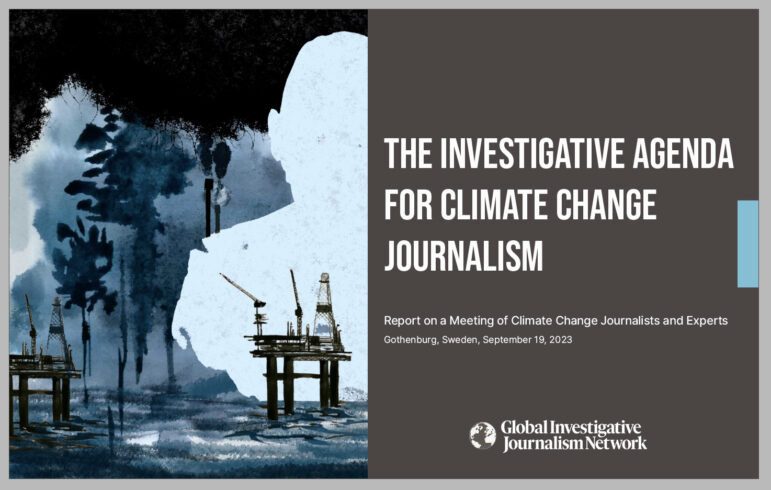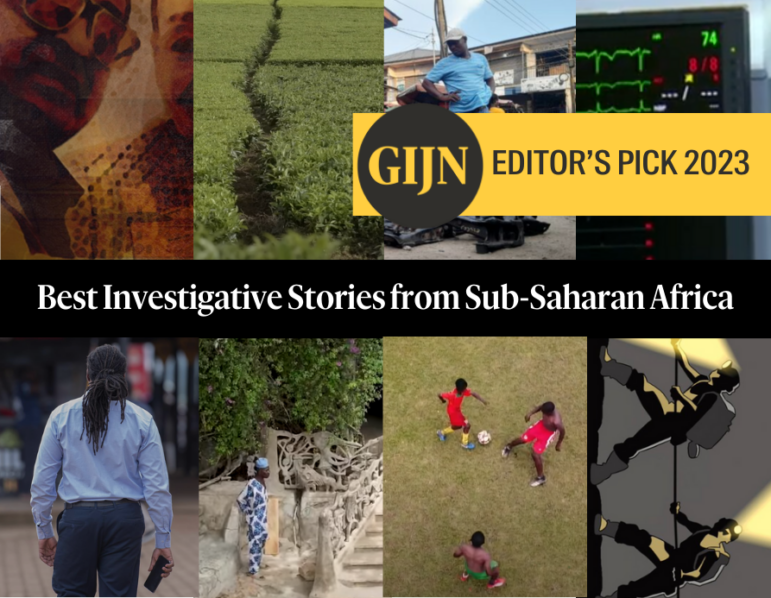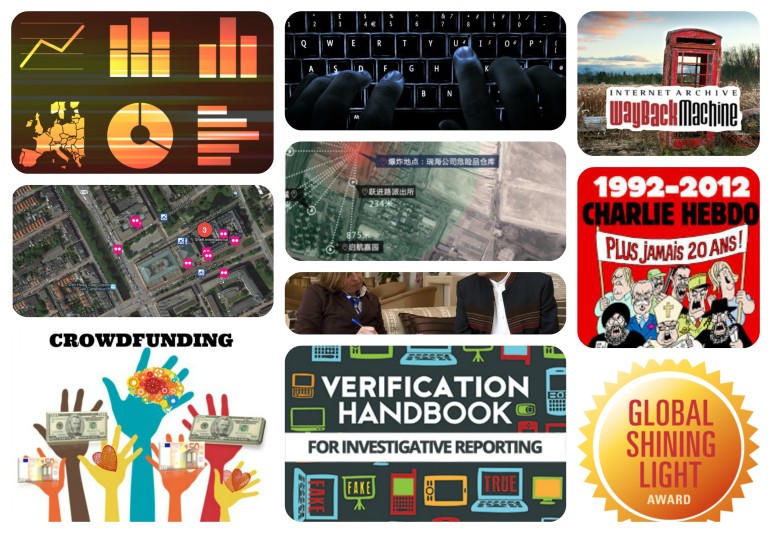

Investigative Reporting in 2015: GIJN’s Top 12 Stories
As 2015 nears an end, we’d like to share our top 12 stories of the year — the stories that you, our dear readers, found most compelling. The list ranges from free data tools and crowdfunding to the secrets of the Wayback Machine. Please join us in taking a look at The Best of GIJN.org this year:
 Drilling Down: A Quick Guide to Free and Inexpensive Data Tools: Newsrooms don’t need large budgets for analyzing data–they can easily access basic data tools that are free or inexpensive. This popular summary was put together by pioneering data journalist Nils Mulvad, editor at Kaas & Mulvad and GIJN board member.
Drilling Down: A Quick Guide to Free and Inexpensive Data Tools: Newsrooms don’t need large budgets for analyzing data–they can easily access basic data tools that are free or inexpensive. This popular summary was put together by pioneering data journalist Nils Mulvad, editor at Kaas & Mulvad and GIJN board member.
 12 Finalists Named for Global Shining Light Award: Twelve extraordinary stories from 12 countries were finalists in this year’s Global Shining Light Award, a unique prize which honors investigative journalism in a developing or transitioning country, done under threat or duress. Includes story links and a video with highlights.
12 Finalists Named for Global Shining Light Award: Twelve extraordinary stories from 12 countries were finalists in this year’s Global Shining Light Award, a unique prize which honors investigative journalism in a developing or transitioning country, done under threat or duress. Includes story links and a video with highlights.
The Art of the Interview: The interview is one of the—if not the—most important tools we as journalists have to obtain, expand, or clarify information. Unfortunately, many journalists pay little attention to this important skill. These clear guidelines were excerpted from the Reporter’s Guide to the Millennium Development Goals.
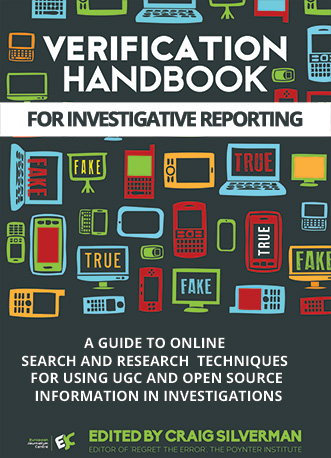 Online Research Tools and Investigative Techniques: Internet research ace Paul Myers gives a trove of tips on effective online research, including best use of search engines, finding people online, and identifying domain ownership. Excerpted from the Verification Handbook for Investigative Reporting.
Online Research Tools and Investigative Techniques: Internet research ace Paul Myers gives a trove of tips on effective online research, including best use of search engines, finding people online, and identifying domain ownership. Excerpted from the Verification Handbook for Investigative Reporting.
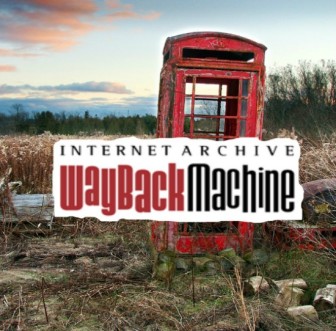 Secrets of the Wayback Machine: Find out why The Wayback Machine is among the most useful and important tools for anyone who uses the Internet for research, and discover tips and tricks to use it. This was the initial post of GIJN’s Research Desk. by noted reference librarian Gary Price.
Secrets of the Wayback Machine: Find out why The Wayback Machine is among the most useful and important tools for anyone who uses the Internet for research, and discover tips and tricks to use it. This was the initial post of GIJN’s Research Desk. by noted reference librarian Gary Price.
 Crowdfunding for Journalists: The GIJN staff put together this comprehensive resource page on how to crowdfund journalism projects, with tips, tutorials, guides, and even free tools for your campaign. Also included: a guide to global and regional crowdfunding sites.
Crowdfunding for Journalists: The GIJN staff put together this comprehensive resource page on how to crowdfund journalism projects, with tips, tutorials, guides, and even free tools for your campaign. Also included: a guide to global and regional crowdfunding sites.
Web Scraping: A Journalist’s Guide: As more and more institutions publish data online, web scraping has become an increasingly useful tool for reporters. Canadian journalist Nael Shiab gives examples on how to use computer programs to read HTML code from webpages, and then analyze it. If you’re interested in ethical questions raised by this method, don’t miss part two here.
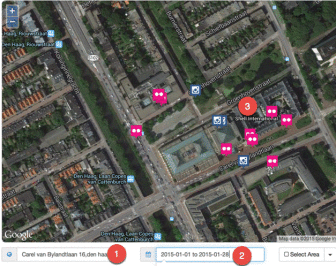 Online Methods to Investigate the Who, Where, and When of a Person: Internet search expert Henk van Ess gives strategic advice and tools for online research on three of the biggest questions in journalism: who, where, and when? Another excerpt from the Verification Handbook for Investigative Reporting.
Online Methods to Investigate the Who, Where, and When of a Person: Internet search expert Henk van Ess gives strategic advice and tools for online research on three of the biggest questions in journalism: who, where, and when? Another excerpt from the Verification Handbook for Investigative Reporting.
21st Century Muckraking: Investigative Reporting Unleashed: Brant Houston, GIJN’s board chair and author of the Investigative Reporter’s Handbook, gives an overview of how investigative journalism is adapting to rapid changes in technology and the economy, with new models, methods, and global expansion.
8 Lessons on Investigative Journalism from “Spotlight” : GIJN Director David Kaplan reviews the movie Spotlight, calling it the best film on muckraking since All the President’s Men. He sets out eight lessons from the story for investigative reporters, from “the investigative sniff” to “the journalism of outrage.”
: GIJN Director David Kaplan reviews the movie Spotlight, calling it the best film on muckraking since All the President’s Men. He sets out eight lessons from the story for investigative reporters, from “the investigative sniff” to “the journalism of outrage.”
 You Can’t Kill an Attitude: Remembering Charlie Hebdo: Paris-based Mark Lee Hunter, an adjunct professor at INSEAD, writes on the aftermath of the massacre at Charlie Hebdo’s office and gives needed background to the magazine, including its running battle with the French extreme right, and its role in widening the space for investigative reporting in France.
You Can’t Kill an Attitude: Remembering Charlie Hebdo: Paris-based Mark Lee Hunter, an adjunct professor at INSEAD, writes on the aftermath of the massacre at Charlie Hebdo’s office and gives needed background to the magazine, including its running battle with the French extreme right, and its role in widening the space for investigative reporting in France.
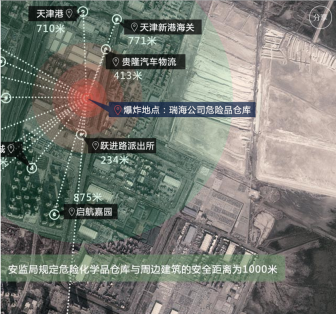 Chinese Media Investigate Deadly Explosion in Tianjin: Ying Chan and Karen Chang of the Journalism and Media Studies Centre at Hong Kong University analyze the Chinese media’s aggressive reporting on the massive explosion in Tianjin this year, despite official efforts to control news coverage.
Chinese Media Investigate Deadly Explosion in Tianjin: Ying Chan and Karen Chang of the Journalism and Media Studies Centre at Hong Kong University analyze the Chinese media’s aggressive reporting on the massive explosion in Tianjin this year, despite official efforts to control news coverage.

